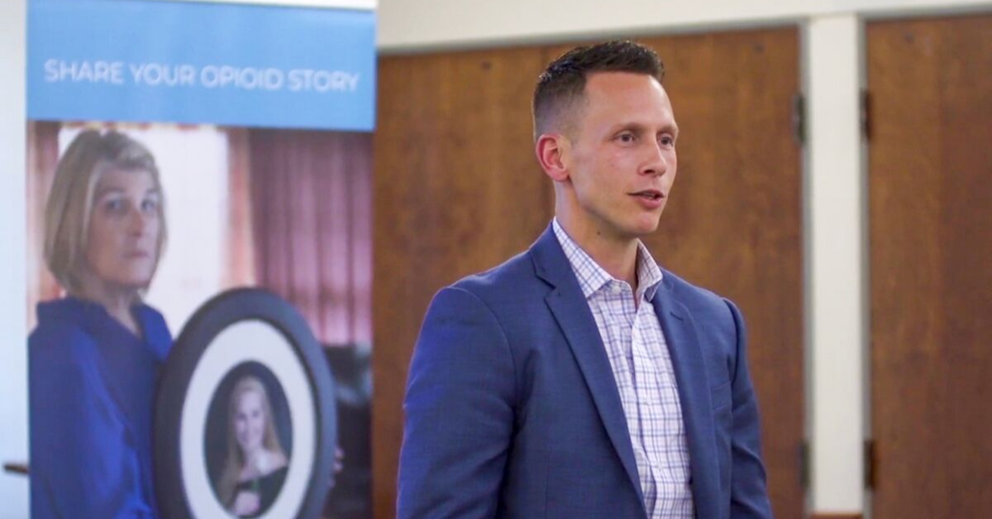
Trisha Stouch lost her daughter Pamela to a drug overdose almost 10 years ago, but Stouch remembers like yesterday the moment she realized her daughter’s need for opioids had taken over her life.
A stay-at-home mom, frequent chaperone on school trips and softball coach, Stouch was an involved parent. But Pamela met a boy who changed everything: She started smoking marijuana, drinking and abusing pills. When Stouch found out Pamela was snorting OxyContin, she confronted her daughter.
“She came at me physically. She ripped my necklace off, my glasses,” Stouch said. “This was not my daughter.”
Stouch’s daughter’s struggle with opioid abuse is part of a new cross-platform media and outreach project produced by WPSU Penn State that features a collection of videos, a podcast and a new website.
The project, "Overcoming an Epidemic: Opioids in Pennsylvania," aims to help raise awareness of evidence-based practices, programs and policies to prevent and treat opioid abuse, and to identify barriers that prevent the adoption and spread of effective practices and policies.
A 30-minute television show will air at 8:30 p.m. on Sept. 19 on WPSU-TV and explore some of the issues facing Pennsylvania as it battles its opioid crisis and how evidence-based solutions can help turn the tide in the fight against opioid misuse.
Cheraine Stanford, WPSU’s director of content strategy, said the project’s goal is to help save lives by creating media that will educate and motivate through various forms, including through video, a seven-episode podcast, a website and community events.
“Substance abuse, including the opioid crisis, is one of the most challenging issues facing Pennsylvania,” Stanford said. “As central Pennsylvania's public media station, we felt it was important to not just look at the problems being caused by the epidemic but what was being done to try to solve them."
The project website consists of strategies used to fight the opioid epidemic presented through videos and a podcast produced by WPSU. Strategies featured in the project include reducing stigma, prevention options, legal system programs, care resource networks, family support, rural care and education, and recovery.
Reducing stigma is the focus of Glenn Sterner, assistant professor of criminal justice at Penn State Abington, whose project "Share Your Opioid Story" features 150 accounts of people’s struggles.
Stouch’s daughter Pamela is just one of the stories collected by Sterner, and he said stories like Pamela’s get repeated over and over. Pamela was isolated and too embarrassed to reach out for help. She ended up a statistic, part of the 130 people a day who die on average nationwide due to the opioid epidemic.
But that shouldn’t be the end of her story, Sterner said.
“The only way that we're going to move beyond those statistics to help you really understand the breadth, the depth, and frankly, the major issues associated with substance use disorder is by helping to share those stories,” Sterner said. “The more that we can talk about this issue, the more that we can openly support you in that recovery process, the more likely that you're going to get better.”
The cross-platform project has been made possible with support from the Penn State Office of the Provost. WPSU is an Outreach service of Penn State.
Visit the WPSU website for more information.